My daughter is three and I’m still breastfeeding her
Juliet Owen-Nuttall, 48, a former firefighter turned fertility coach, lives in Dorset with her husband Daniel, 41, chef patron of a pub, and their daughter Lyra, three. Here she explains why despite some surprised reactions from others, extended breastfeeding is right for her and her daughter.
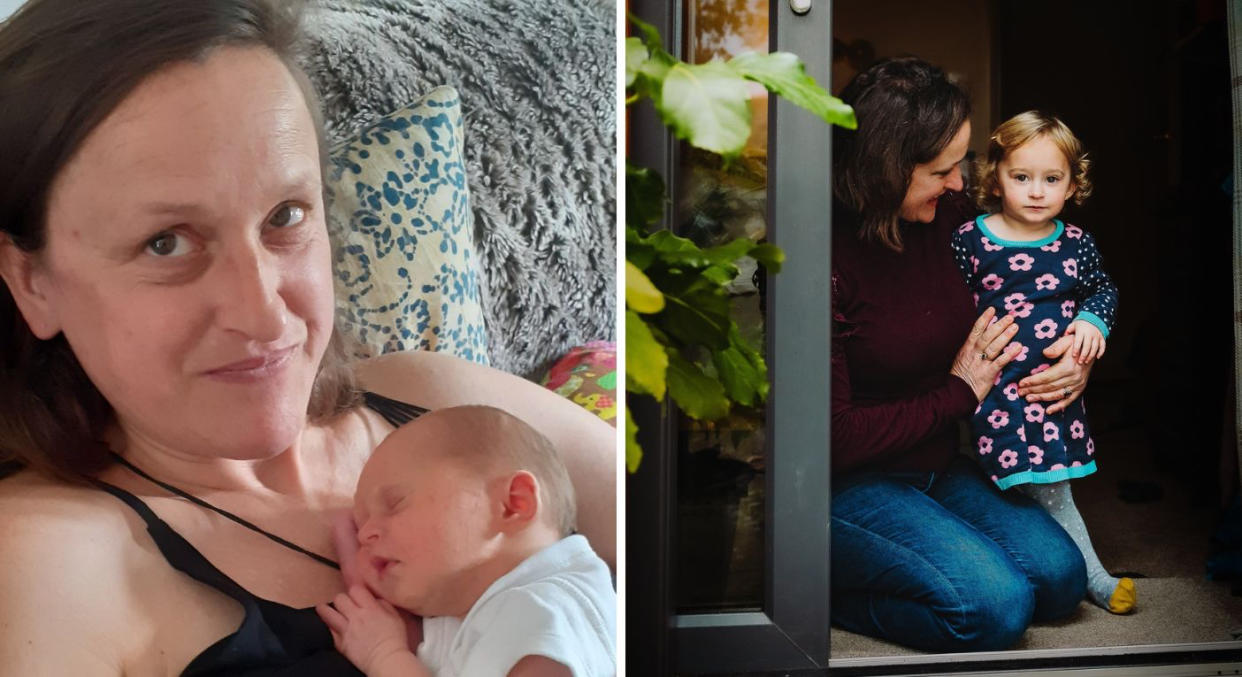
There are many things from her baby days that my now three-and-a-half-year-old daughter still loves to do with me. They include lovely warm snuggles, giggling while we exchange lots of kisses, reading bedtime stories sleepily together – and breastfeeding.
Yes, even though she’ll be four next June and recently started nursery, she still loves to latch onto my breast for a feed in the evenings. I’m talking about this acutely aware that extended breastfeeding is an emotive and divisive subject. It causes many people to recoil in horror, while others applaud me for what we’re doing, believing that breast really is best for as long as the child wants to suckle. And I understand both points of view.
Feeding for this long isn’t something I’d planned to do, it's evolved very naturally between Lyra and me. Although it raises many eyebrows socially, it certainly doesn’t go against current NHS guidelines which state that exclusive breastfeeding (breast milk only) is recommended for around the first six months of your baby's life, while breastfeeding alongside solid foods is best for infants from six months.
The advice also says that ‘you and your baby can carry on enjoying the benefits of breastfeeding for as long as you like – breastfeeding into your baby's second year or beyond, alongside other foods, is ideal’.
Going through prenatal depression
Having struggled with fertility, I was 45 when I became a mum and being able to breastfeed at all – even for a few hours or days – felt like something that would be important.
I’m aware that extended breastfeeding is an emotive and divisive subject. It causes many people to recoil in horror, while others applaud me for what we’re doing.
But, like any expectant mum, I didn’t know what my body would do when I tried or whether my baby and I would take to it. This natural uncertainty was compounded because I suffered from prenatal depression which meant I needed professional help with bonding ahead of the birth. None of us knew how I’d feel about anything, including breastfeeding, when my baby arrived.
Thankfully, in the end, I needn’t have worried. Within an hour of Lyra being born, she’d latched onto my breast and was feeding beautifully. I was so happy and relieved after all the emotional problems I’d experienced during pregnancy.
But as the months passed with my newborn, the dominant narrative from my health visitor, other mums and wider society was that the 'normal' end point for breastfeeding should fall when Lyra was between six months and a year old.
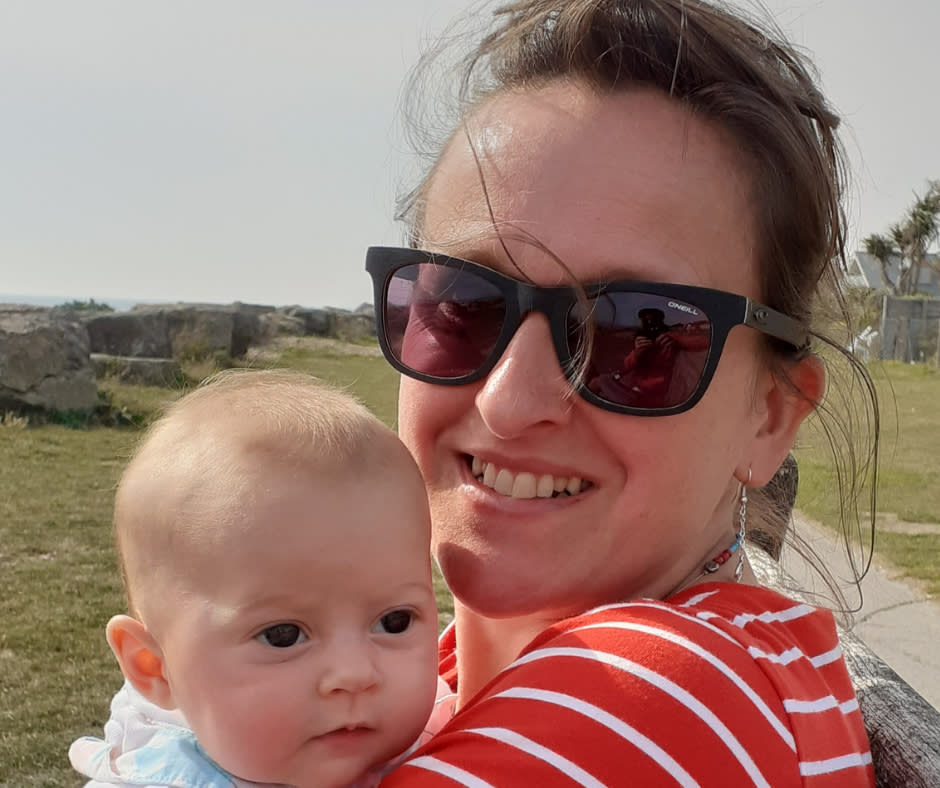
Feeding beyond her first birthday
I was amazed that when she reached six months old people would say, "Oh, you’re still breastfeeding!" But she wasn’t ready to give up and neither was I, so we carried on. When she reached her first birthday nothing had changed. Of course, had she shown signs of not wanting the breast any more I’d have followed her lead and weaned her off it.
This is when I began to experience a backlash and when people’s reactions towards me changed quite dramatically. I could read the disapproving glances when feeding discreetly in coffee shops and other public places, because as they saw it, I was no longer breastfeeding a baby, I was feeding a toddler with teeth who was walking and talking.
Even my health visitor told me, "You just need to stop now, she’ll cry for a couple of days and then she’ll get used to it." I began to feel a little ashamed of the choice that Lyra and I had made.
Gathering opinions
Because Lyra was born during Covid, I didn’t have a circle of new mum friends. But I did ask friends and family members with older children how long they’d fed them for as babies and the general consensus was that a year to 18 months old was stretching it.
Even my health visitor told me, 'You just need to stop now, she’ll cry for a couple of days and then she’ll get used to it.' I began to feel a little ashamed of the choice that Lyra and I had made.
Even my sister, who’d breastfed her children and then switched to the bottle at six months, kept telling me, "You need to put her on formula now." Our mum, who didn’t breastfeed us as she said it was just a bit of a no-no in the 1970s, supported this view.
I was so conflicted. Part of me felt pressure to stop because everyone around me was telling me I should, but I also questioned why I should give up something so natural at a time when neither Lyra nor I wanted to.
My husband was 100 per cent supportive of my decision – and would have been equally reassuring had I decided to stop.
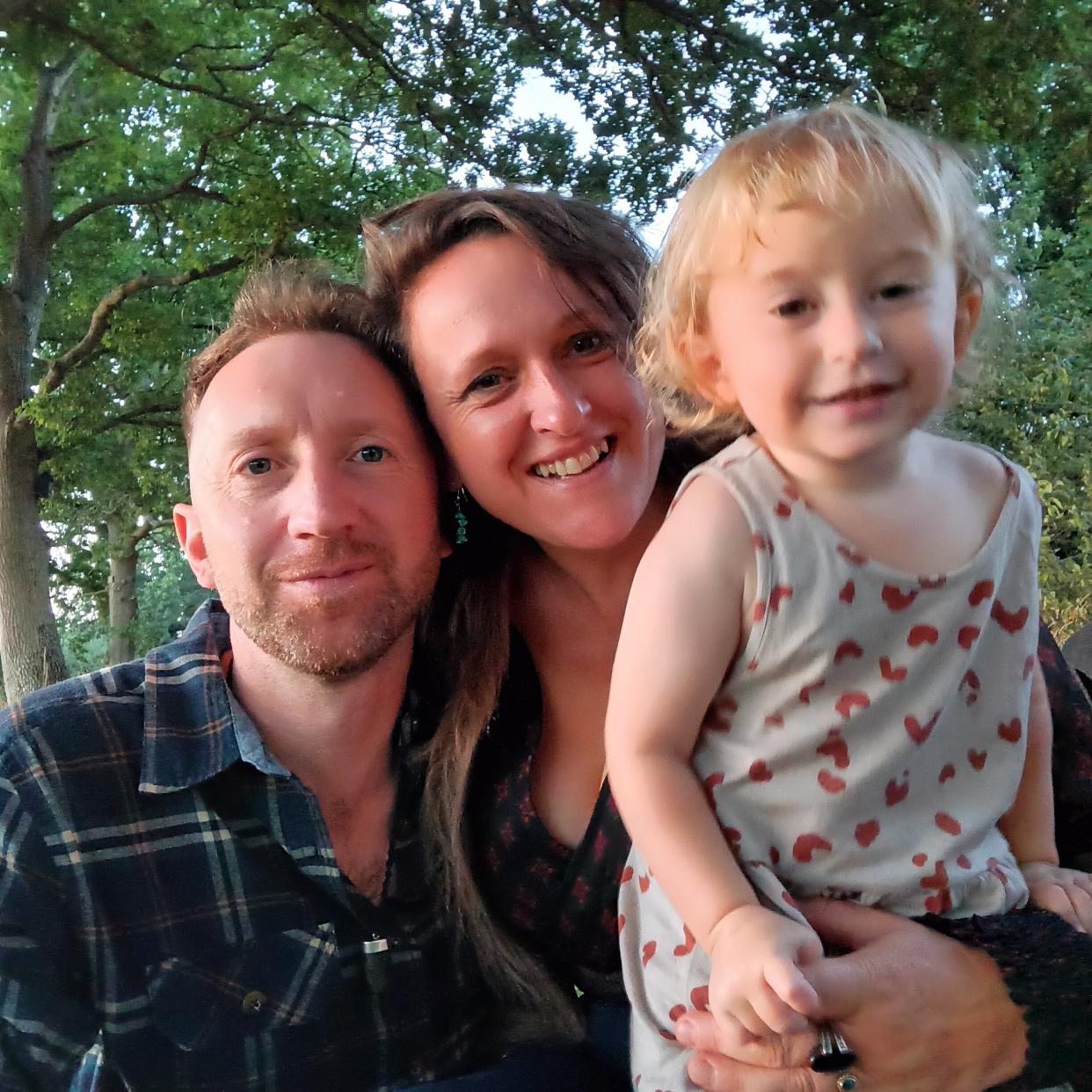
Feeding on demand
Aged two, Lyra suddenly dropped her bedtime breastfeed when we went on a staycation because of the change in our normal routine. Until then, breastfeeding had been her pacifier when it was time to go to sleep.
But she continued waking during the night wanting milk, just as she had done from being a young baby, although of course she could ask for it now. It was the same when she woke in the morning. My rationale was that if she was asking for it, then she still needed it on some level.
Now that she’s three and a half and at nursery, I no longer breastfeed her in public because I’m conscious of attracting negative attention.
Giving up feeding in public
Now that she’s three and a half and at nursery, I no longer breastfeed her in public because I’m conscious of attracting negative attention. I’ve also stopped talking about it with friends and family because I know they disapprove. Once she’d turned two and I admitted I was still breastfeeding, I think they all thought, 'Well, what more can we say to her, she’s obviously doing her own thing!'
Nobody asks me anymore and ultimately, it’s none of their business anyway. While Lyra wants to breastfeed, I’ll continue to do it. Although she doesn’t ask for milk any more during the day, she’s still very enthusiastic about it in the evenings and during the night.
However, I’m realistic that if breastfeeding doesn’t come to a natural end in the next year, then I’ll have to chat to Lyra about it. She’ll start in reception at school next September and that’s when we’ll definitely stop if she hasn’t already. There’s still a stigma around extended breastfeeding, and I don’t want her to be teased or judged for it by other children or parents.
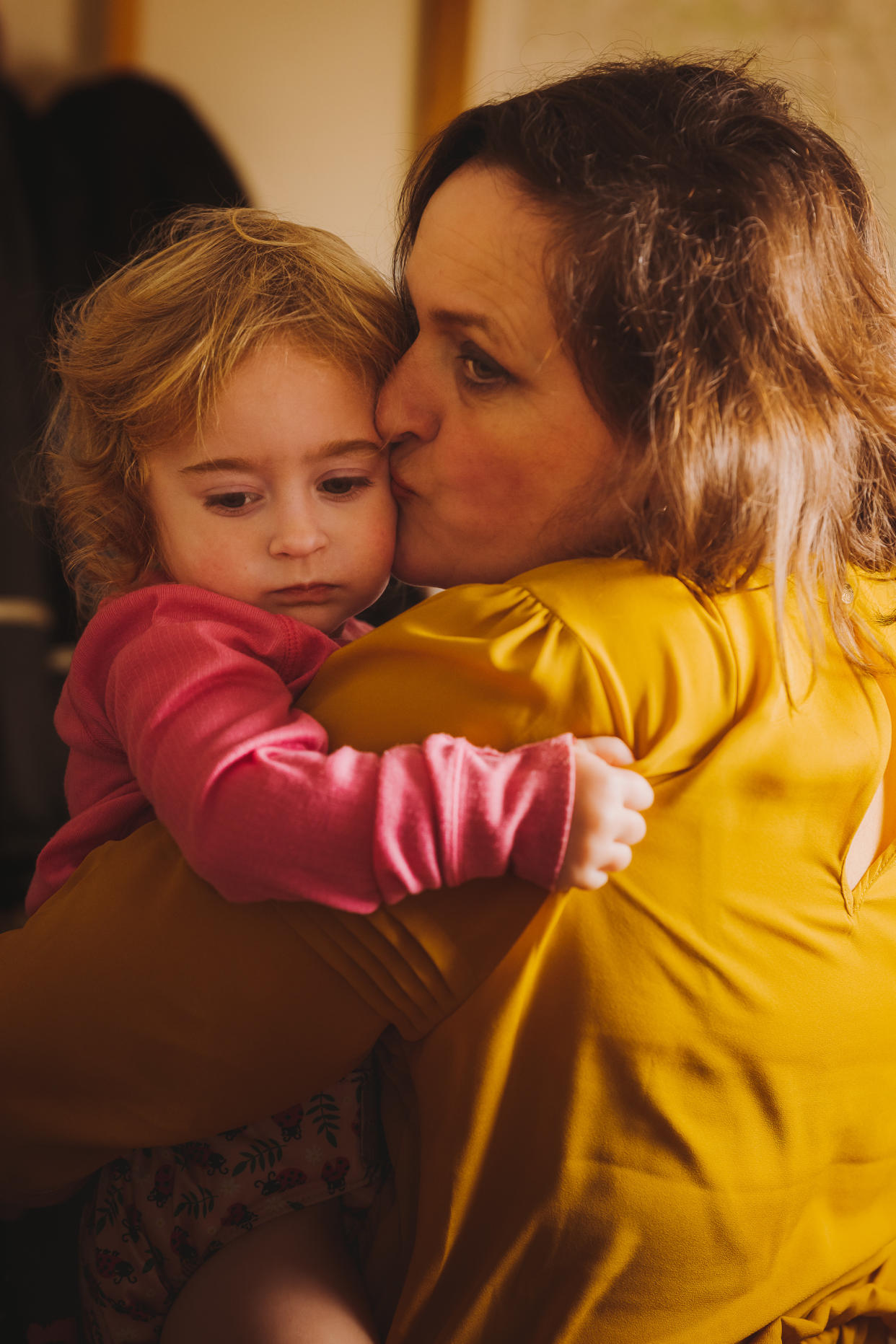
A personal choice
My left breast has already dried up so there’s no guarantee that my body will keep producing milk for another year anyway.
The saddest thing is that I don’t think most men have an opinion of breastfeeding, it’s other women – mothers – who judge. But why would I replace my own milk with that produced by another animal?
I could read the disapproving glances when feeding discreetly in coffee shops and other public places, because as they saw it, I was no longer breastfeeding a baby, I was feeding a toddler.
I’ve learned that as a mum you have to tap into your own intuition and make sure that whatever choices you make for your child are based on your values and what’s right for them and for you.
Just because someone else says I should stop, if it doesn’t feel right, why should I? In the same way, I’d never judge a woman who chose not to breastfeed at all. It’s a personal choice.
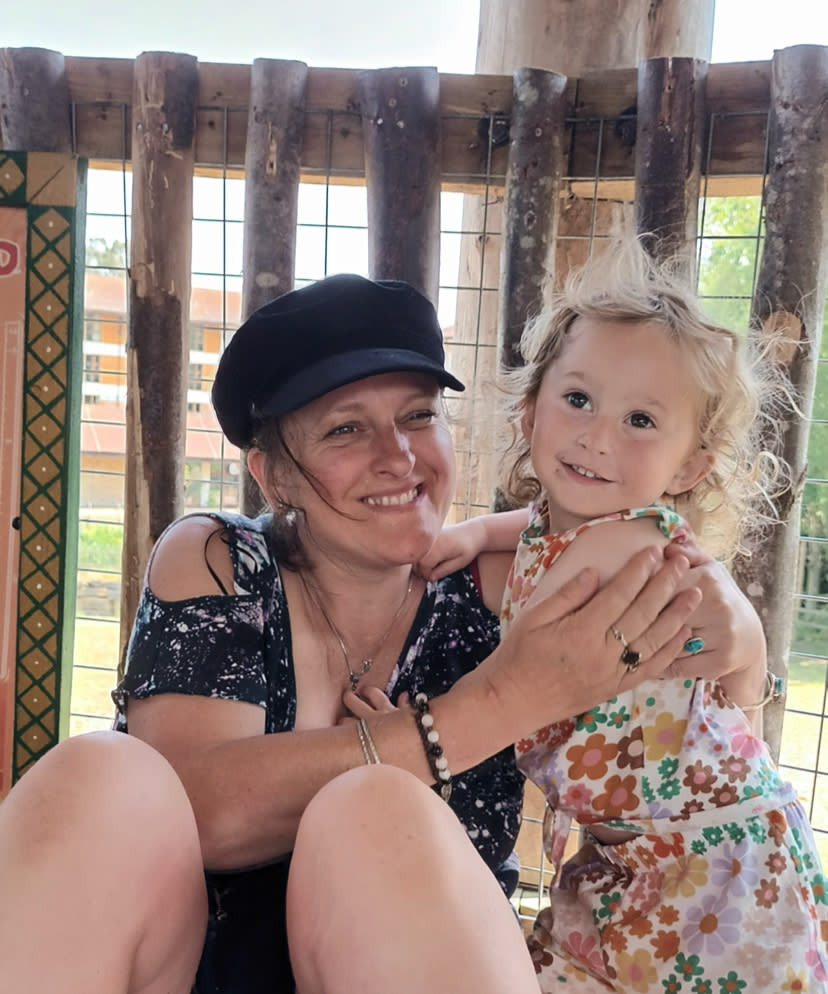
Health benefits
For me, the health benefits for Lyra – reduced risk of infections and Sudden Infant Death Syndrome (SIDS), as well as a lower risk of cardiovascular disease in adulthood – were reason enough for me to breastfeed for as long as I have, especially as I was apparently an extremely sickly child at her age. Lyra’s never had Covid and has only caught one cold.
The fact that there are also health benefits for me including a reduced risk of breast and ovarian cancer, obesity and osteoporosis are an added bonus.
Having spent my pregnancy in a depression, fearing that I wouldn’t be able to bond with my baby when she arrived, breastfeeding for this long has been a completely unplanned and unexpected but wonderful experience for Lyra and for me.
Juliet is co-founder of The Non Invasive Method, helping women aged 40+ boost their fertility naturally.


